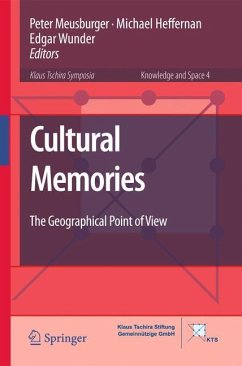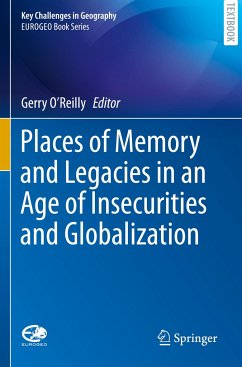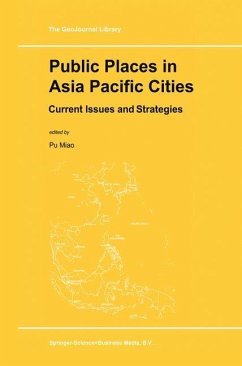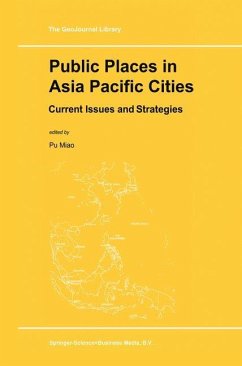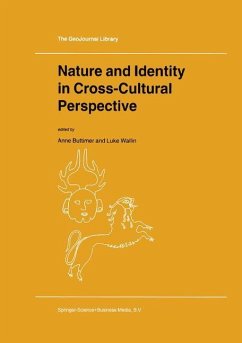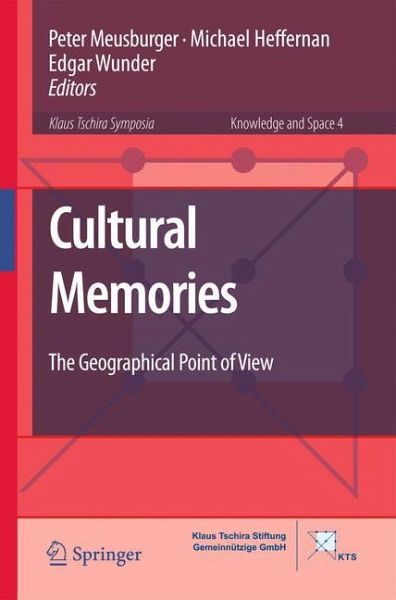
Cultural Memories
The Geographical Point of View
Herausgegeben: Meusburger, Peter; Heffernan, Michael; Wunder, Edgar
Versandkostenfrei!
Versandfertig in 6-10 Tagen
113,99 €
inkl. MwSt.

PAYBACK Punkte
57 °P sammeln!
Cultural memories are social constructions of the past which allow human beings both personally and collectively to orient themselves in time and space. This book focusses on the role of spatiality and places for cultural memories. It offers new insights to the formation and development of cultural memories in ancient and modern societies. The book concentrates on theoretical considerations how cultural memories should be conceptualised, includes three case studies to apply these concepts to three very different contexts, focuses on the question of an emerging, distinct European cultural memor...
Cultural memories are social constructions of the past which allow human beings both personally and collectively to orient themselves in time and space. This book focusses on the role of spatiality and places for cultural memories. It offers new insights to the formation and development of cultural memories in ancient and modern societies. The book concentrates on theoretical considerations how cultural memories should be conceptualised, includes three case studies to apply these concepts to three very different contexts, focuses on the question of an emerging, distinct European cultural memory, its variances and especially the role of World War II for its origination, studies cultural memories in post-colonial contexts outside Europe, and offers insides on cultural memories in tribal, nomadic societies before or on the edge of Neolithic revolution. Cultural memories are social constructions of the past which allow humans personally and collectively to orient themselves in time and space. In this book, scholars in anthropology, egyptology, geography, history, political science and psychology offer new insights to the formation and development of cultural memories in ancient and modern societies, focusing on the role of spatiality and places.
Part I covers theoretical considerations of how cultural memories should be conceptualised. Part II offers three case studies that apply these concepts to different contexts: the founding myth of a nation, contested memories related to a civil war, and oral traditions not referring to a national narrative. Part III details an emerging, distinct European cultural memory, its variances and the role of WW II for its origin. Part IV studies cultural memories in post-colonial contexts outside Europe. Part V probes cultural memories in tribal, nomadic societies before or near Neolithic revolution.
Part I covers theoretical considerations of how cultural memories should be conceptualised. Part II offers three case studies that apply these concepts to different contexts: the founding myth of a nation, contested memories related to a civil war, and oral traditions not referring to a national narrative. Part III details an emerging, distinct European cultural memory, its variances and the role of WW II for its origin. Part IV studies cultural memories in post-colonial contexts outside Europe. Part V probes cultural memories in tribal, nomadic societies before or near Neolithic revolution.





